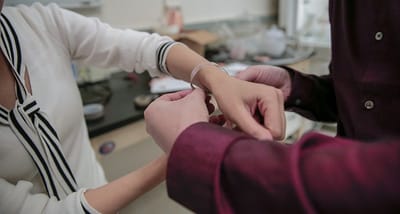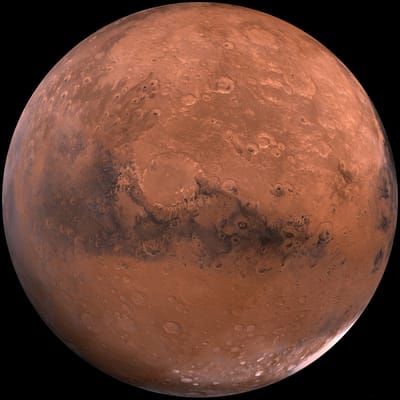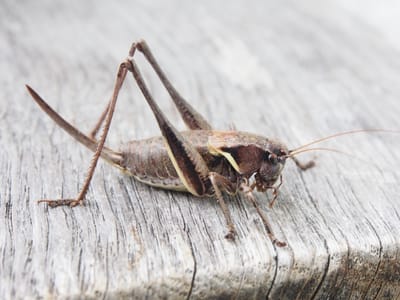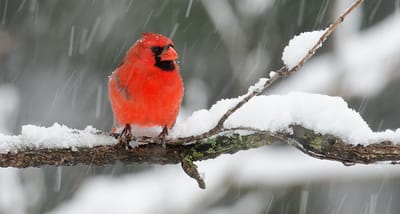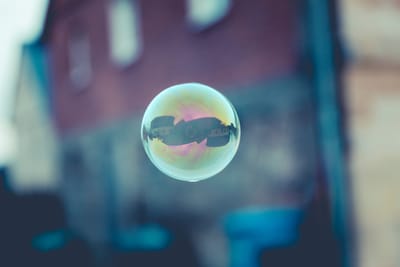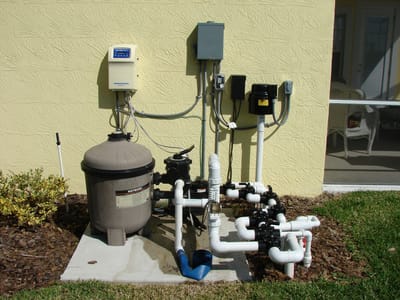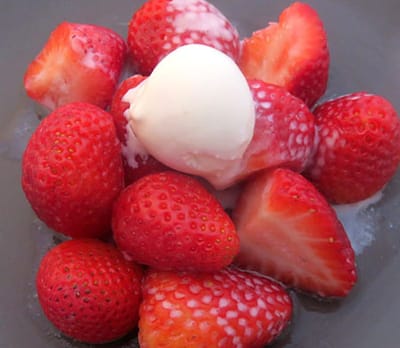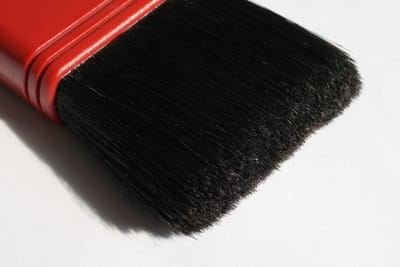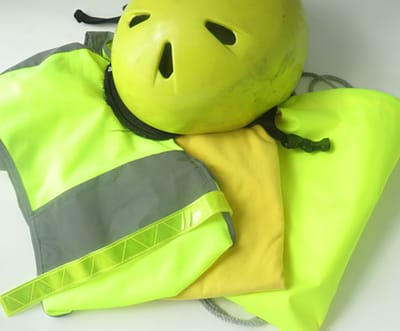Articles
The movements of a patient’s body power this setup
Read MoreThese oddly-shaped insects have even stranger habits, like caring for their young and secretly communicating through inaudible vibrations.
Read MoreScience explains why some storms quietly dust us with flakes while others howl ferociously
Read MoreCan you catch a bubble with your hands? What if you use another material, like a piece of paper or aluminum foil? Try this science project to find out which materials can catch a bubble without popping it.
Read More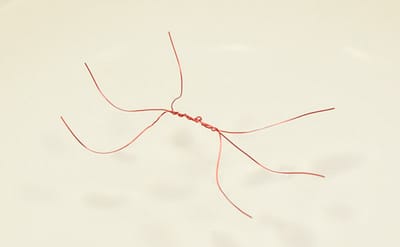
Water Striders & Surface Tension *
Water striders (also called water bugs, pond skippers, etc.) are insects that can hop around on the surface of water (Figure 1). Unlike boats or other floating objects that are partially submerged and held up by the resulting buoyant force, water striders are held up by surface tension. You can build your own water striders using thin wire (Figure 2). Do some background research about surface tension, and experiment with how different variables affect the performance of your water strider. What happens if you change the diameter of the wire, the length of the legs, or the number of legs? For advanced students, can you do calculations that determine how much weight the water strider should be able to support based on the size of the legs? How do these calculations compare to your experimental results?
Do you like your hair shiny and beautiful? The key to keeping your hair nice and clean is to use a good shampoo. But with so many different products in the store, how do you know which one works best for you? In this science project, you will put a variety of shampoos to the test, including your own self-made organic shampoo recipes. Do you think these will perform better than a store-bought product?
Read MoreDo you filter your tap water before drinking? Many commercials claim these filters make your drinking water cleaner and safer. But what, exactly, are these filters doing and is the water really cleaner afterwards? The cleaning power comes from their filling material, called activated carbon. It exists in all kind of forms: powder, granules, foams, and blocks. Do you think it matters what type of activated carbon is inside the filter? In this activity you will investigate whether larger or smaller particles of activated carbon work better for cleaning drinking water—with results you can see!
Read MoreWould you like to add an unusual twist to a yummy food like ice cream? In this kitchen science project, you will make mind-bending hot ice cream. You will experiment with, and of course munch on this gastronomic treat. It is easy, it is delicious, and it is fun! Go ahead and try it out!
Read MoreWhen you delete a file, by accident or on purpose, is the information really gone? Can you get it back? If you accidentally deleted your five-page report for school, you are hoping it is not gone. On the other hand, if you do not want someone to get their hands on the goofy and unflattering pictures you and your best friend took while staying up late the other night, you probably hope it is gone for good! It might be nice to know for sure either way. Try this project to find out.
Read MoreDid you know that the most likely time to be struck and killed by a car in the United States is at dusk, dawn, or at night? In 2014, 3 out of every 4 pedestrian fatalities happened in these types of poor light conditions. Is there something you could do to decrease the chances you, your friends, and your family members are safer when walking or biking at night? Do you think the types of clothes that you wear could make a difference in how visible you are to drivers? Explore the science of staying visible and safe at night with this science project; what you discover might save someone's life.
Read MoreWould it surprise you to learn that no one knows the exact age of the universe? Astronomers have estimates, and as they gather increasingly precise data and measurements, they continue to refine those estimates to come up with more accurate estimates. In this project, you can look at data about stars in dense groups called globular clusters and come up with your own estimate for the minimum age of the universe. How closely will your estimate match those of other astronomers?
Read More